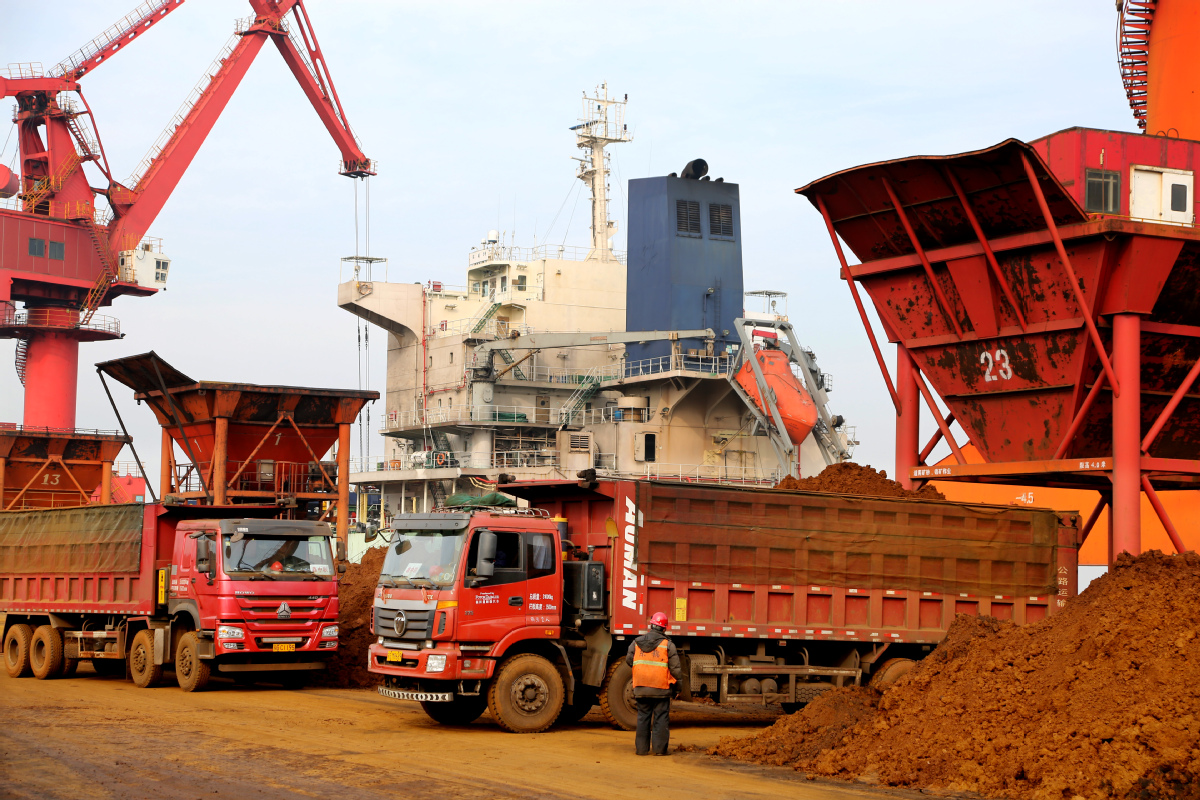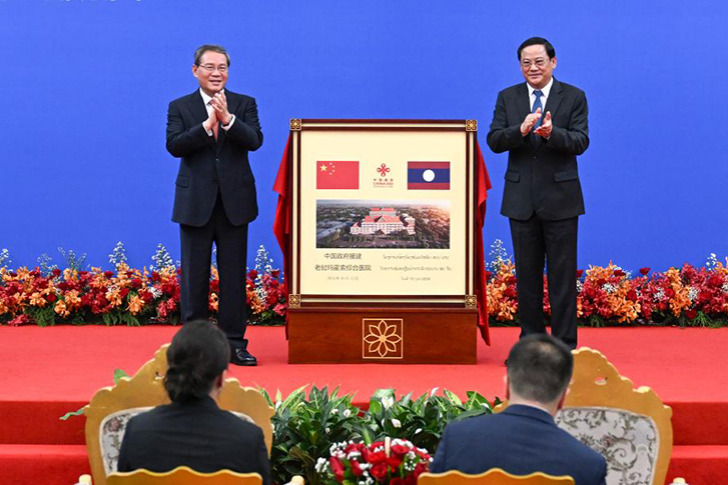Analysts: Iron ore supplies not hit by Vale mine shutdown


Vale's decision to suspend iron ore mining at its Itabira complex in Brazil will have little effect on the Chinese and global iron ore market despite the marginal effect on the Brazilian market, analysts said.
Brazil's Vale SA was earlier ordered by a court to shut operations at the Itabira complex after 188 workers in the facility tested positive for COVID-19 recently. The complex accounts for about a tenth of Vale's total iron ore output.
"Due to the shutdown, there will be a disruption in iron ore supplies during the first six months of this year, but we still expect a surplus in the second half of this year," said Zhu Yi, a senior analyst for metals and mining at Bloomberg Intelligence.
"We expect the temporary shortage in iron ore supplies won't pose too much of an impact on the iron ore market in China, which has already resumed production."
Future contracts for iron ore and other energy-related products in China rose on Monday, with iron ore rising by more than 5 percent, crude by 5 percent and fuel oil by 3 percent.
Zhu said China's demand for steel will be supported in the second half of this year by the government's new infrastructure construction and other stimulus policies.
"Steel exports may be hurt due to the slow economic recovery in overseas markets. Overseas steel output will increase in the third quarter as blast furnaces idled in the second quarter gradually come back online. However, overseas steel demand will still fall on a yearly basis this year," she said.
Iron ore prices are expected to be driven up in the short term on market concerns of less shipments from Brazil, with port inventories at a three-year low and rising demand from steel mills. Shipments from Australia have been smooth, but those from Brazil are not likely to improve significantly in the short term due to the COVID-19 epidemic.
Yang Chang, an analyst with Zhongtai Securities, believes that iron ore prices will continue surging if upstream supply cannot meet demand, especially as China has resumed production and has been working against the clock.
Iron ore inventories have been falling at China's 45 ports, according to a report by Zhongtai Securities. Inventories stood at 107.85 million metric tons as of May 29, the lowest since 2016.
China's imports of iron ore are mainly from Australia and Brazil, and any disruption in the two countries will have an effect on the import situation in China, Yang said in a report.
However, Zhu believed the situation is only temporary.
"We believe that inventories will rise as shipments from Australia and Brazil have increased since May," she said.
"Though the mine shutdown at Vale might affect shipments, production restrictions in Tangshan, a steelmaking hub in northern China's Hebei province, will help increase inventories."
China, the world's top iron ore importer, imported 445 million tons of iron ore during the first five months of the year, up 5.1 percent on a yearly basis, at an average of 629 yuan ($88.76) per ton, up 6.7 percent in terms of price, according to data from the General Administration of Customs.
Vale said that it was sticking with its annual iron ore output guidance of 310-330 million tons and has been adopting safety measures without stalling output.
Zhu expects the shutdown may force Vale to deliver on the low end of the guidance range at 310 million tons and thus pose concerns for global supplies.
"We expect a 32-million-ton surplus to develop in the second half after an estimated 25-million-ton deficit in the first half," she said.
"The estimated 32 million tons are driven by higher sequential shipments from BHP, Rio Tinto, Fortescue and Vale, together with some other junior miners, among which Vale makes up 70 percent of the global shipment increase. While Vale's supply may be at risk, the effect should be short term as the shutdown will be canceled once the virus is brought under control."
Bloomberg Intelligence expects iron ore to be oversupplied next year.




































